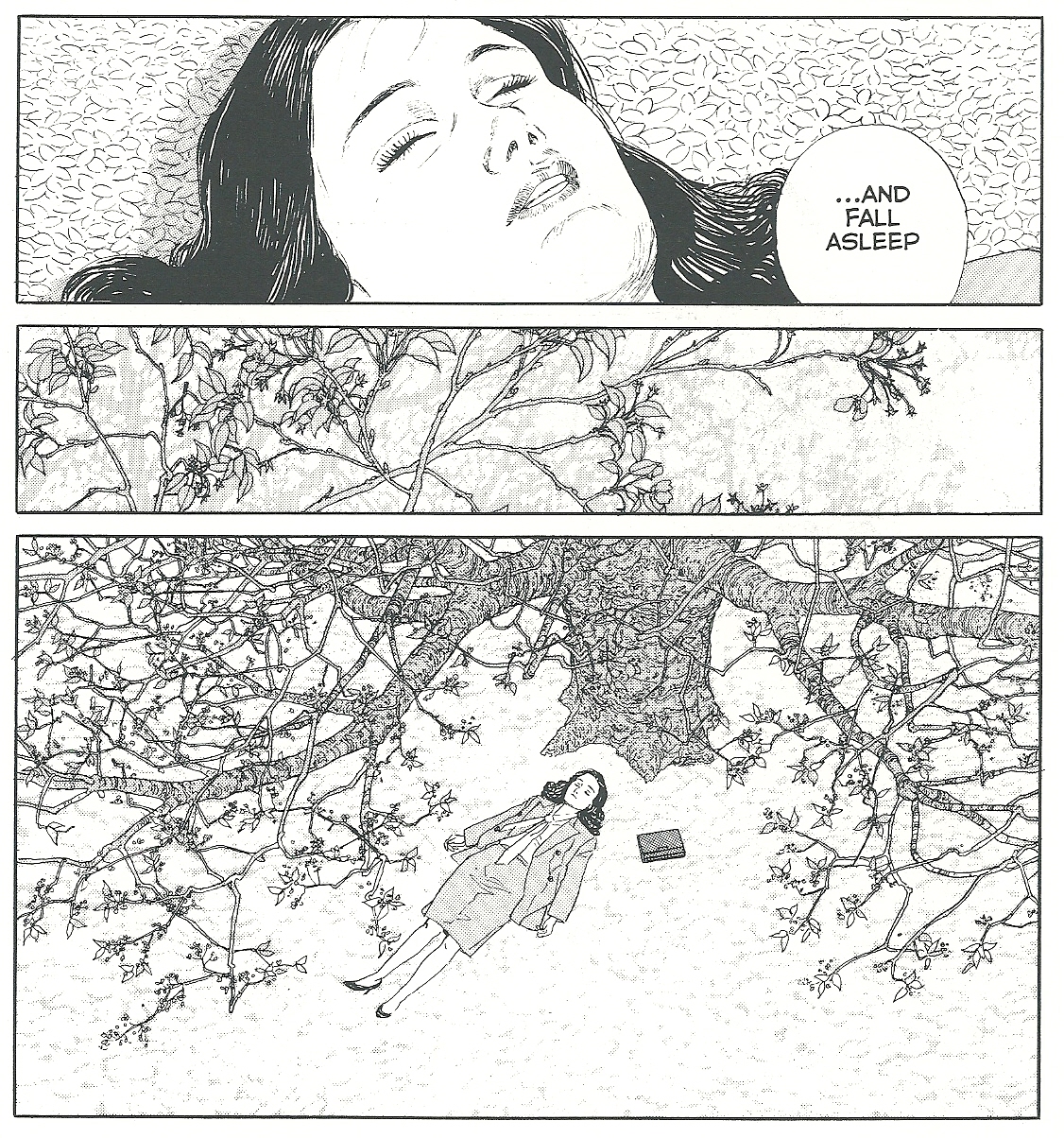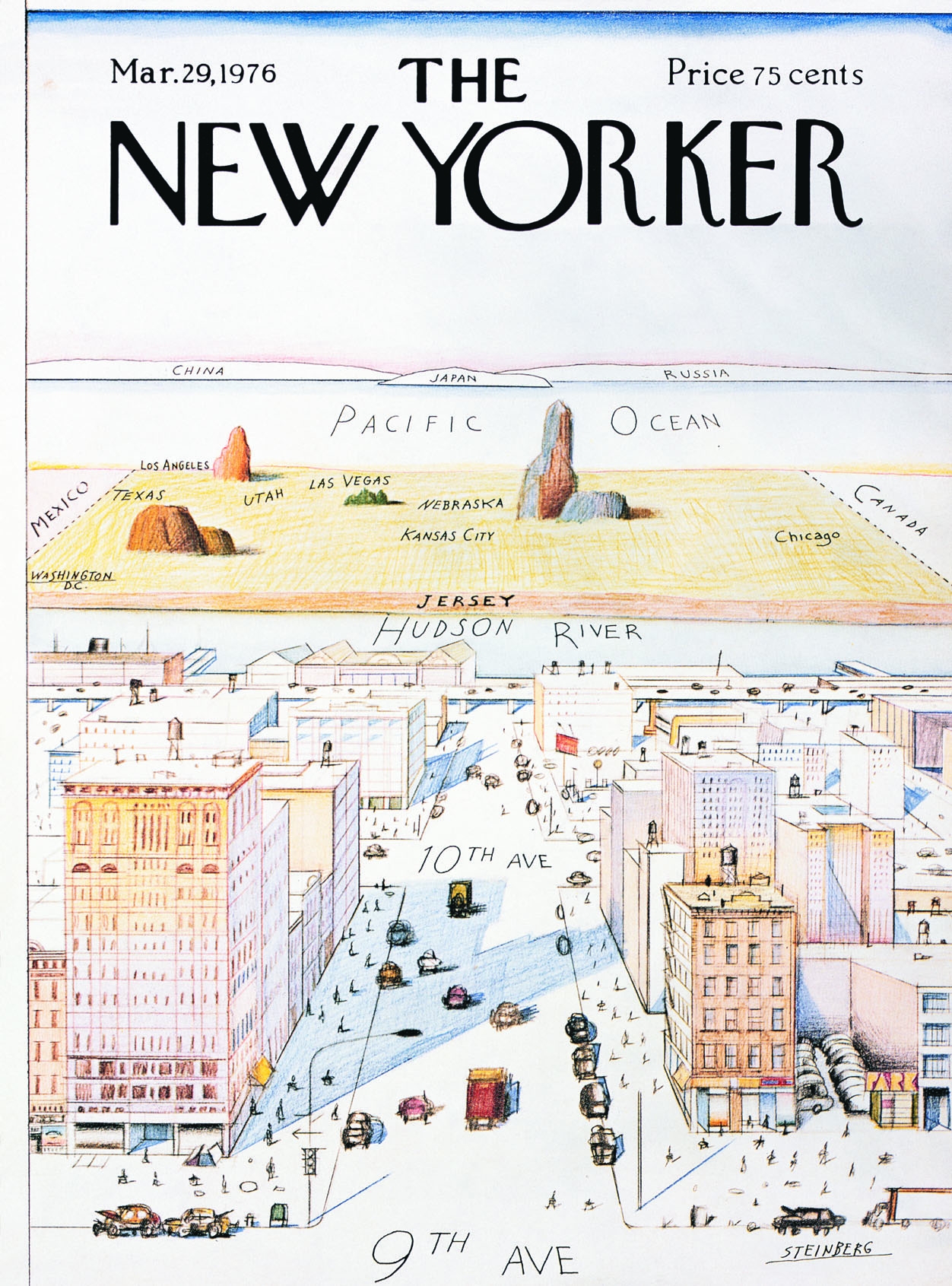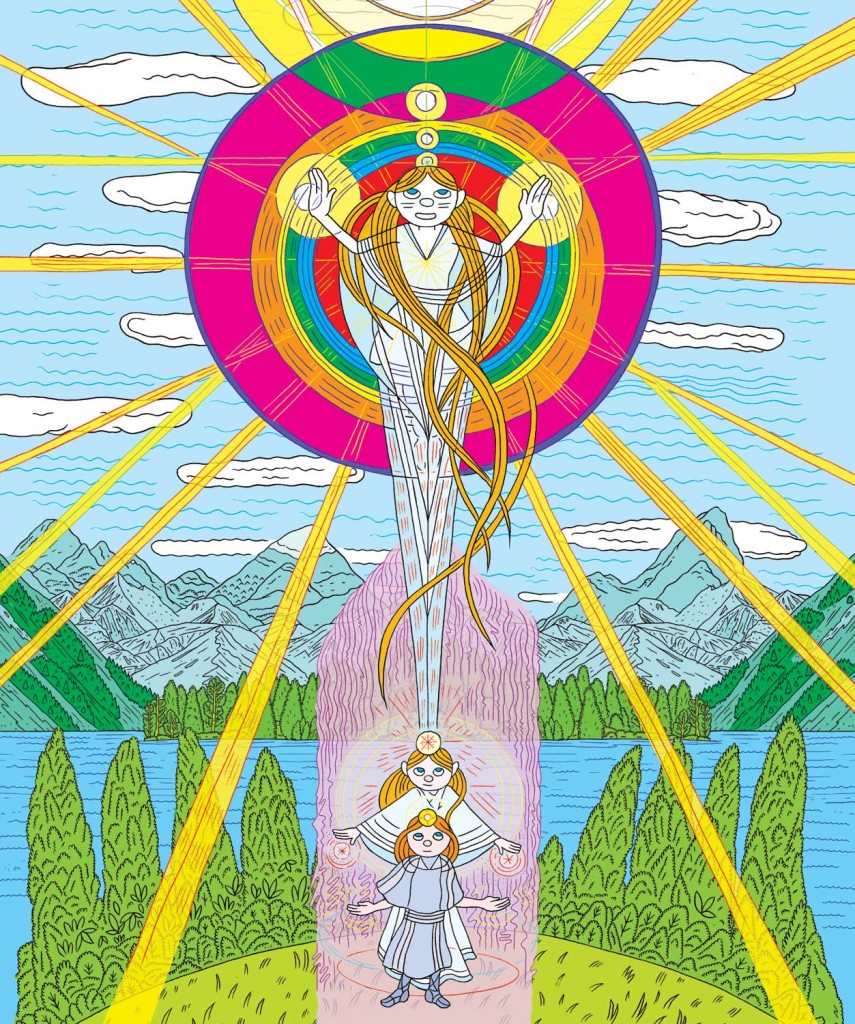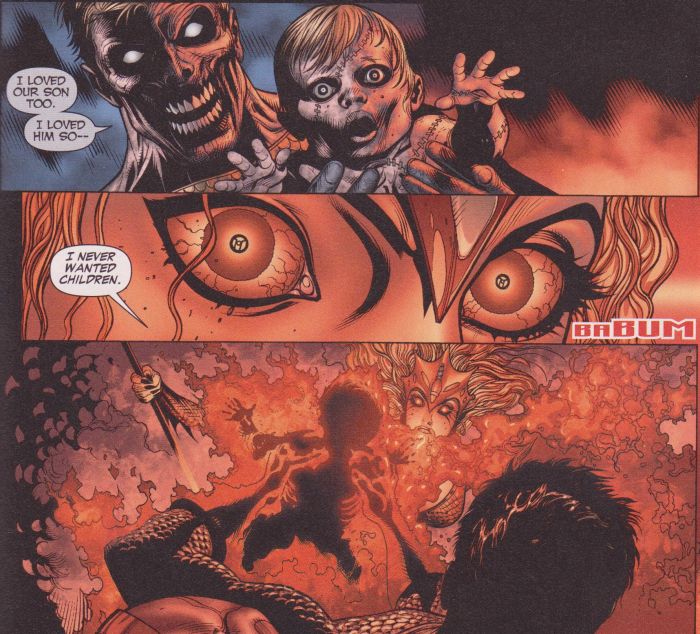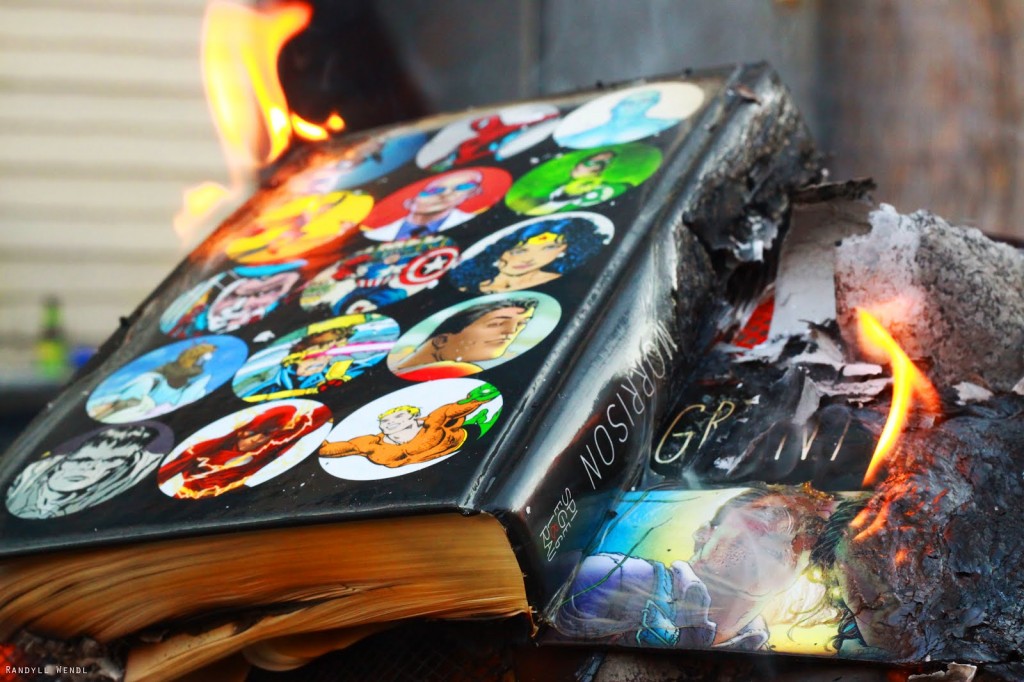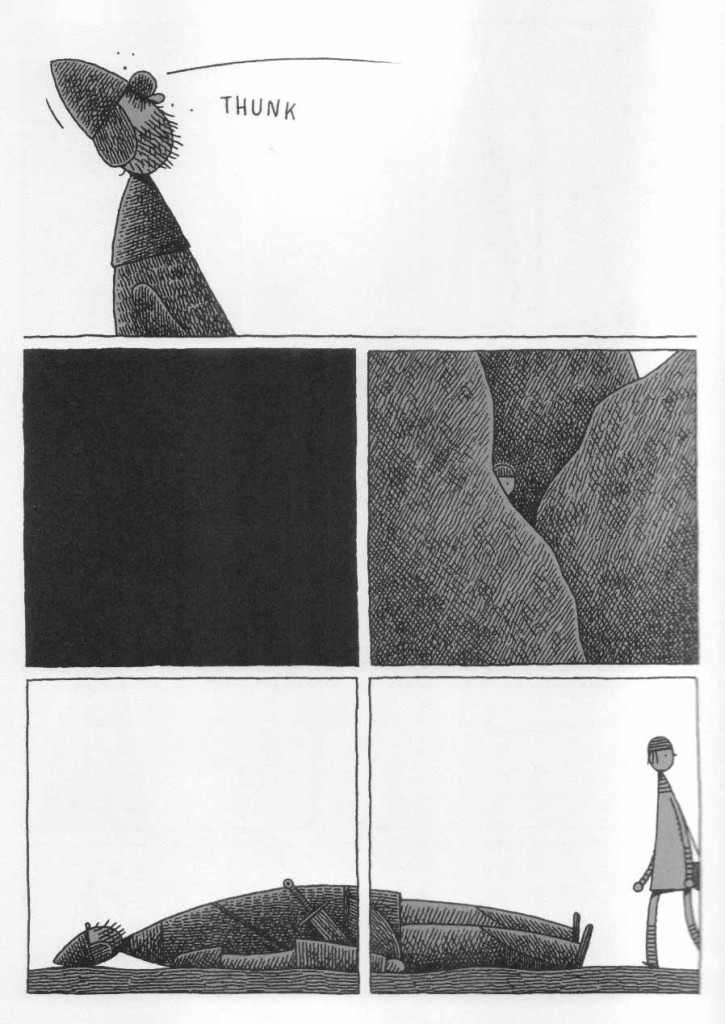Late is better than never. Presumably.
The truth is that I almost chucked this whole thing into the trash heap because of a number of last minute exits from the voting process. I lost 3 judges in the early months of 2013 but, thankfully, Jacob Canfield stepped in at the last minute to give this year’s judging an extra voice and hopefully more diversity in taste. So diverse in fact that there was very little agreement as to which articles should make it to the final list in the initial voting.
The jurors this year were Jacob Canfield, Ken Parille, Caroline Small, and myself.
Looking back on the final list for 2010, I have to say that, in general, I’m happier with the final selection this year. Part of this is no doubt due to the fact that this is the first year I’m actually participating in the voting (while restricting the number of votes I actually use). The voting process for 2011 was a wash but my personal feeling is that 2012 was a better year for comics criticism than 2010. Perhaps readers here will pipe in with their own thoughts.
As for the final list, let me just remind everyone again that there is nothing less dependable than collective taste.
Three Votes Received
Craig Fischer – “Taniguchi Blossoms”
Fischer received a vote each for “The Lives of Insects: On Photography and Comics” and “Devils and Machines: On Jonah Hex and All Star Western” as well. So the final choice here is a bit of a compromise. Of these three articles, I would say that Fischer’s piece on the intersection(s) between photography and comics has the most to say about the art form. It is divided into 3 sections, moving from traditional photo comics, to the synthesis of both art forms and hence to the photo comic as “found” object (hinging on the indefinability of comics). I have little little doubt it was the most poorly received of the three in view of its intellectual content and semi-obscure sources.
“Taniguchi Blossoms” is a close and passionate reading of one of Jiro Taniguchi best comics, The Walking Man. The pleasurable emotions Fischer derived from that manga are communicated with a deft touch, though I will say that I disagree with his concluding comments where he cites Taniguchi’s A Zoo in Winter as another example of “the frisson between the perfection of [Taniguchi’s] diagrammatic art and the pressed by percolating emotion of the characters.” That latter manga has an obviousness and predictability which I associate with pot boiler Japanese romances.
Matthias Wivel – “New Yorker Cartoons: A Legacy of Mediocrity”
Wivel also received a vote for his article, “Donald Duck: Lost in the Andes.” The Barks-Donald Duck essay is a detailed run down of the comics being reprinted, giving historical background and story detail, before throwing light on past editorializing and the issue of recoloring.
The New Yorker article seems to be the more interesting selection, not least for the thoroughness of its negative criticism. It probably helps that I personally find The New Yorker to be a bright shining repository of shallow cartooning (with the usual exceptions). The publication targeted is certainly august, pays well, and is seen by many as the holy grail of paid cartooning work. It has attracted very little cogent negativity over the years. The article is a welcome corrective.
Two Votes Received
Corey Creekmur – “Remembering Locas”
This was part of a Locas roundtable in early 2012. The title is self-explanatory and takes in the long tradition of continuity and fan memory in comics with special emphasis on the intricacies of this mechanism in Locas. Creekmur extends this act of remembrance to all aspects of the work: the publisher-gods; the demands on Jaime’s readers; the action of memory and time on the characters; the essence of nostalgia in Locas; the purposeful and inescapable recollections on the part of the artist.
Heather Love – “The Mom Problem”
This is a lengthy article at Public Books about Alison Bechdel’s Are You My Mother? I think it is safe to say that of the dozens of articles written about that comic in 2012, this is one of the better ones, providing basic background information before moving on to more detailed analysis. The focus here is less on Bechdel’s command of comic language but the Freudian aspects of Bechdel’s relationships and the structural importance Donald Winnicott’s work plays in the comic.
The article is a useful example of the dichotomy between comic criticism written for an intellectually serious site meant for general readers and that for a specialist comics site. While the latter sites often contain a mixture of traditional literary and more comic-based readings, it is only in recent years that more extensive, less technical reviews have appeared in the other type of publication.
Sean Rogers – “Flex Mentallo and the Morrison Problem”
Rogers is one of the best new(-ish) writers that the editors of TCJ.com have decided to employ and his article on Grant Morrison probably his most discussed piece of comics criticism. Bad Morrison (of which there is plenty) is certainly all too easily maligned, but what of the more “canonical” works (Animal Man, Doom Patrol, All-Star Superman etc.) For Rogers, the problems with Flex Mentallo are representative of a much deeper rot and Morrison’s soulless insularity.
Peter Wilkins – “Pluto: Robots and Aesthetic Experience”
This article was cited by Caro as “probably” being her favorite. The title is once again self-explanatory. The article succinctly ponders the nature of humanity, intelligence, and the aesthetic imperative. It ends with an insoluble question concerning the transaction between violence and art.
_______
A short comment on a notable omission.
2012 was probably the best year on record for TCJ.com in terms of comics criticism so it’s a bit strange that so few pieces managed to get enough votes to pull through to the final list. Part of this has to do with the fact many of the more impressive critical endeavors at TCJ.com this year were the result of accretion and accumulation. I would say that the best writing on Chris Ware’s Building Stories in 2012 was probably at the roundtable at TCJ.com. There was a more superficial blessing to be had as well. In contrast to many of the mainstream reviewers, most of the writers eschewed boosterism while remaining overwhelmingly positive. For this small mercy, I am grateful.
Articles at TCJ.com which received a single vote include Joshua Glen on “The Pathological Culture of Dal Tokyo“, Glen Gold on the Hand of Fire roundtable, Jeet Heer on Crumb, Ryan Holmberg on Tezuka Osamu, Dan Nadel on Born Again, Nicole Rudick on Frank Santoro’s Pompeii, and Dash Shaw on Jeffrey Brown’s Cat Comics.
Of these, I would single out Ryan Holmberg’s articles on manga at TCJ.com for special mention. His work follows in the long line of comics historical scholarship which has been the primary mode of engagement for much of the history of comics criticism. The exception in this case being that the subjects being discussed—vintage manga—have never had a “popular voice” in the English language.
Most of the judges won’t have time to write about their choices this year so I’ll list one other writer who was considered during the voting process. Two articles by Nicolas Labarre found favor with one of the judges. One on City of Glass at Comics Forum and the other on Art and Illusion in Blutch’s Mitchum at The Comics Grid.
_____
Update: Judge Jacob Canfield discusses his selections here.

